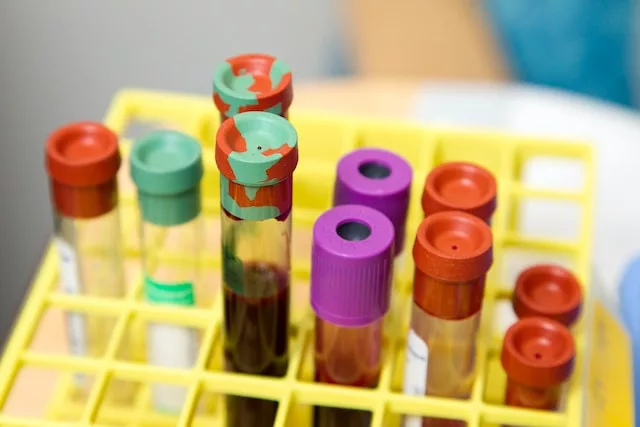
Understanding Blood Cancer Symptoms for women

Introduction
Blood cancer is a type of cancer that affects the production and function of blood cells. This type of cancer can develop in the bone marrow, which is the spongy tissue inside the bones responsible for making blood cells. Blood cancer can also develop in the lymphatic system, which is a network of tissues and organs that help the body fight infection.
It’s important to recognize blood cancer symptoms because early detection can increase the chances of successful treatment.
Types of Blood Cancer
There are several different types of blood cancer, including leukemia, lymphoma, and myeloma. Leukemia is a cancer of the blood and bone marrow, which causes the production of abnormal white blood cells.
Lymphoma is a cancer of the lymphatic system, which causes the production of abnormal lymphocytes. Myeloma is a cancer of the plasma cells, which are a type of white blood cell that produces antibodies.
The symptoms of blood cancer can vary depending on the type of cancer. For example, people with leukemia may experience fatigue, weakness, and infections, while those with lymphoma may experience swollen lymph nodes, fatigue, and fever.

Common Blood Cancer Symptoms for women
The following are some of the most common symptoms of blood cancer:
Fatigue and weakness
Fatigue and weakness are common symptoms of blood cancer. People with blood cancer may feel tired even after getting plenty of rest. They may also feel weak and unable to perform their usual activities.
Unexplained weight loss
Unexplained weight loss is another common symptom of blood cancer. People with blood cancer may lose weight without trying, which can be a sign that their body is not functioning properly.
Frequent infections
People with blood cancer may be more susceptible to infections because their immune system is compromised. They may experience frequent infections, such as colds, flu, and pneumonia.
Bruising and bleeding easily
Bruising and bleeding easily can be a sign of blood cancer. People with blood cancer may develop bruises or bleed easily, even from minor injuries.
Swollen lymph nodes
Swollen lymph nodes are a common symptom of lymphoma. Lymph nodes are small, bean-shaped structures that are part of the lymphatic system. They may become swollen if there is an infection or cancer in the body.
Bone pain

Bone pain is a common symptom of myeloma. Myeloma cells can accumulate in the bone marrow and cause pain in the bones.
Shortness of breath
Shortness of breath is a symptom of blood cancer that affects the lungs. People with blood cancer may experience shortness of breath during physical activity or at rest.
Itchy skin
Itchy skin can be a sign of blood cancer. People with blood cancer may experience itchiness without a rash or other visible skin changes.
Night sweats
Night sweats are a common symptom of blood cancer. People with blood cancer may wake up sweating and need to change their clothes and bedding.
Less Common Blood Cancer Symptoms
In addition to the common symptoms listed above, blood cancer can also cause less common symptoms. These symptoms may be less specific to blood cancer and can make diagnosis more challenging. Some less common symptoms of blood cancer include:
Abdominal discomfort or fullness
Abdominal discomfort or fullness can be a sign of lymphoma. People with lymphoma may experience abdominal pain, bloating, or a feeling of fullness after eating a small amount of food.
Headaches

Headaches can be a sign of blood cancer that affects the central nervous system. People with blood cancer may experience headaches that are severe or persistent.
Vision changes
Vision changes can be a sign of blood cancer that affects the eyes. People with blood
cancer may experience blurred vision, double vision, or other changes in their eyesight.
Numbness or tingling in the hands or feet
Numbness or tingling in the hands or feet can be a sign of blood cancer that affects the nerves. People with blood cancer may experience a loss of sensation or a tingling sensation in their hands or feet.
Swelling in the legs or arms
Swelling in the legs or arms can be a sign of blood cancer that affects the lymphatic system. People with blood cancer may experience swelling in their legs or arms due to a buildup of lymph fluid.
Jaundice
Jaundice is a yellowing of the skin and eyes that can be a sign of blood cancer that affects the liver. People with blood cancer may experience jaundice if the cancer has spread to the liver.
Conclusion
Recognizing the symptoms of blood cancer is important for early detection and successful treatment. If you experience any of the symptoms listed above, it’s important to talk to your doctor as soon as possible.
While some of these symptoms may be caused by other conditions, it’s always better to err on the side of caution when it comes to your health.
In summary, common symptoms of blood cancer include fatigue and weakness, unexplained weight loss, frequent infections, bruising and bleeding easily, swollen lymph nodes, bone pain, shortness of breath, itchy skin, and night sweats.
Less common symptoms may include abdominal discomfort or fullness, headaches, vision changes, numbness or tingling in the hands or feet, swelling in the legs or arms, and jaundice.
If you are experiencing any of these symptoms, it’s important to see your doctor for an evaluation. Your doctor may perform a physical exam and order blood tests to check for abnormalities in your blood cells. Additional tests, such as imaging studies or a bone marrow biopsy, may also be necessary to make a diagnosis.
Treatment for blood cancer depends on the specific type and stage of the cancer, as well as other factors such as your age and overall health.
Common treatment options include chemotherapy, radiation therapy, stem cell transplantation, and targeted therapy. Your healthcare team will work with you to develop a treatment plan that is tailored to your individual needs.
In addition to medical treatment, there are several things you can do to manage your symptoms and improve your overall well-being. Eating a healthy diet, staying physically active, and getting plenty of rest can help you feel better and may improve your response to treatment.
It’s also important to seek emotional support from friends, family, or a professional counselor.
In conclusion, blood cancer is a serious condition that can be difficult to diagnose and treat. However, recognizing the symptoms of blood cancer and seeking prompt medical attention can improve your chances of successful treatment and long-term survival.
If you are experiencing any of the symptoms mentioned in this article, don’t hesitate to talk to your doctor and seek the care you need.



